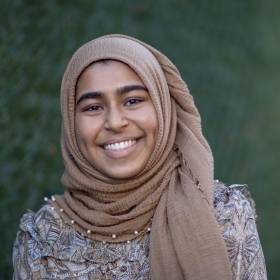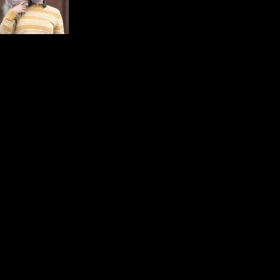While the past year has brought historic challenges, it has also been a spur to action, calling on Wellesley—and on each of us—to step into our full power.
While the past year has brought historic challenges, it has also been a spur to action, calling on Wellesley—and on each of us—to step into our full power.
As I write these words, we are still in thrall to the COVID-19 pandemic, moving through a dark winter toward widespread vaccinations. The economy is precarious. Calls for racial justice continue to resound, as do urgent cries for action on climate change. At Wellesley, teaching is both in person and remote, with roughly half of our students now on campus, and while our efforts have staved off campus COVID-19 spread, the need for physical distance has been difficult.
Yet amid such pain and disruption, the Wellesley spirit shines on. Throughout our community, I have witnessed a tremendous surge of energy around what matters most: the knowledge that each one of us must help to build a new and better world.
One Wellesley student doing just that is Shreya Huilgol ’21, a cognitive and linguistic sciences major, with a health and society minor, who spent the fall studying at home in San Diego. Over the course of 2020, Shreya’s longstanding interest in public health grew ever stronger, along with her commitment to working for social change. “As students, we’re in a unique position because of our youth,” she told me. “It’s a moment of reckoning we’re coming into. It’s really exciting.”
Last summer, Shreya was thrilled to intern with the Centers for Disease Control’s Division of Global Health Protection, after connecting with a Wellesley alumna who works there. While she missed out on the in-person Wellesley in Washington experience, Shreya notes that, with the internship being remote, she was able to extend it into the fall semester, an unexpected benefit.
While the past year has brought historic challenges, it has also been a spur to action, calling on Wellesley—and on each of us—to step into our full power.
As we look toward a post-pandemic future, one of our biggest goals is to help students make the most of a time unlike any other. To channel their passions in ways that promise to have real and enduring impact.
That was the overarching goal of our first-ever January Project, a College-wide winter term collaborative effort that offered a range of virtual student programs designed to foster reflections, relationships, and bridges.
Among the January Project offerings were immersive experiences for each class, including a first-year Common Text Project to read and discuss Moroccan-American novelist Laila Lalami’s The Other Americans. In true Wellesley spirit, alumnae around the world read along with first-year students in the new Alumnae Association book group.
“Literature can be such a powerful first step toward civic engagement,” says Eve Zimmerman, professor of Japanese and director of Wellesley’s Susan and Donald Newhouse Center for the Humanities, who co-created the initiative with Dean of First-Year Students Shanté Brown. “You step into the shoes of another. It helps develop empathy with other perspectives. Reading together also fosters a sense of connection and home. We want every student to have this.”
As reflected in the Common Text Project, each January program was tailored to students’ developmental stages. The Sophomore Community Engagement Experience sought to help students build interpersonal skills essential to effective social-change work, test-driving these skills in their home communities or other virtual spaces, while the Junior and Senior Hive Internship Project Experience—short-term virtual internship experiences that, like Shreya’s, were in many cases arranged through Wellesley parents or alumnae eager to be mentors—were designed to ease students’ transitions into their next chapters.
The January Project also offered a range of seminars hosted by centers, institutes, and offices across campus, highlighting themes from the 2020 Tanner Conference: the COVID-19 pandemic, the changing climate, the movement for racial justice, and the 2020 election. Especially exciting to me was the opportunity for every student to hear an amazing slate of outside speakers, including global leaders hosted remotely by the Albright Institute at a time when global collaboration is as essential as it is at risk.
Last spring, the Indian writer Arundhati Roy observed that pandemics have historically served as portals between one world and the next—forcing humans “to break with the past and imagine their world anew.” I have no doubt that Wellesley students and alumnae will be in the forefront here. We commit to doing all we can to ensure that this is so.


